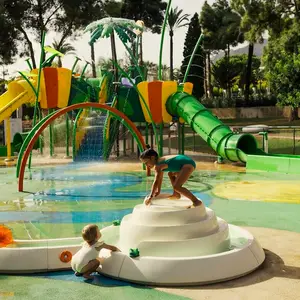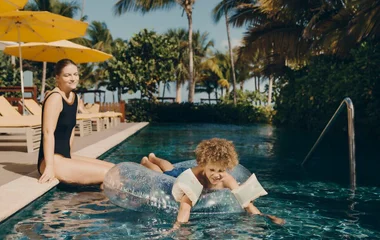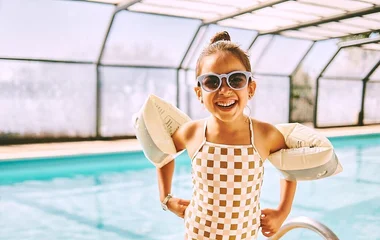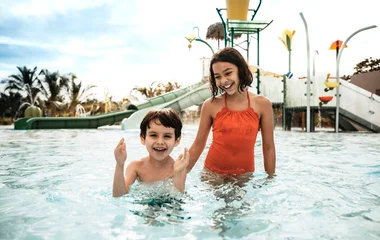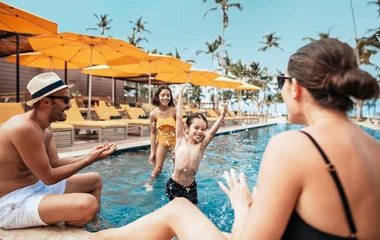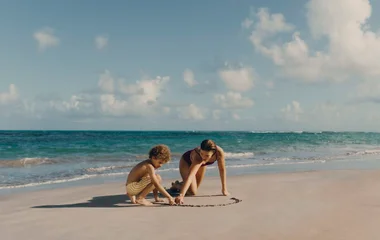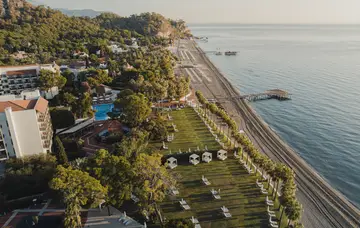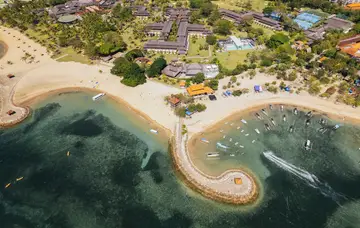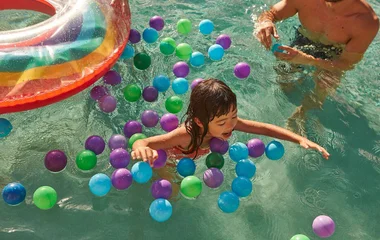
When can you start swimming lessons for children?
This is a constant source of debate among parents and swimming experts, and for every parent that waits until their child is four years old to start lessons, there’s another that will be introducing theirs to the water at four weeks.
Generally speaking, if you are teaching your child to swim, you should start between the ages of two and three. There’s no harm in introducing your baby to the water earlier – indeed, it can help increase their confidence when they begin more formal lessons – but make sure you hold them securely above the water at all times.
